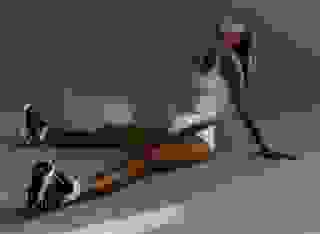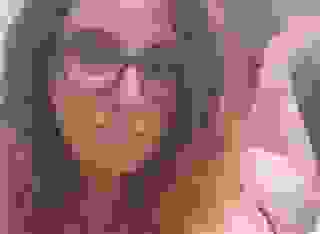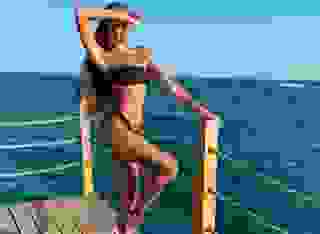Note: You can change font size, font face, and turn on dark mode by clicking the "A" icon tab in the Story Info Box.
You can temporarily switch back to a Classic Literotica® experience during our ongoing public Beta testing. Please consider leaving feedback on issues you experience or suggest improvements.
Click hereYou might have wondered about my state of mind. Well, frankly, I was energized. Astonishing, did you say? Remember that we all thought our imprisonment would last a few weeks, so this was something different, a diversion. We were all convinced that the United States would quickly defeat Japan; once they had, we would be known as the heroes of Santo Tomas.
I know... that sounds fabulously naive in hindsight. But you have to understand we lived in a world where Anglo-American domination was unquestioned. The idea that an upstart nation populated by people not remotely like us could prevail over Western-European armies was simply unimaginable.
Nevertheless, the world had changed. Westerners might have had the advantage of technology and manufacturing throughout the nineteenth and early twentieth centuries. But the Japanese were innovative, and they had learned.
Thus, when the rumor came down in April of '42 that American forces on Bataan had surrendered, we began to think the unthinkable. Then the fall of Corregidor sealed our fate. We realized that we would be stuck in that shithole until death-did-we-part.
It was utterly unreal. You kept expecting the ordinary world of comfort and privilege to return. But instead, you found yourself caught in a continuing nightmare of heat, bugs, deprivation, subjugation, and suffering.
Epidemics of typhoid fever, caused by abysmal sanitation in the overcrowded camp, were a regular occurrence. Then, there was also a prisoner of war's normal ration of shit, accidents, tropical diseases, and malnutrition. I particularly hated the rats. It wasn't until later that they became a delicacy.
The food was unpalatable, and there was never enough of it. We sweated and scratched and lived in filth and stink. But the worst of it was the endless boredom. The natural response was, "Why me??!!"
I'd been one of the social elites before December 8th. Then a mere two months later, I was a faceless prisoner, existing at the whim of an alien and unfathomable people. The culture shock was beyond tolerating. As far as I was concerned, my life was over. I would go to sleep every night praying I wouldn't wake up in the morning.
The unfortunate reality of my new circumstance was hard to bear. I suffered from crippling bouts of self-pity and a constant sense of abject loneliness. The thought of Margarita fucking her way across the Pacific with that reptile Giles Pemberton just put the cherry on top of a big pile of steaming, unjustified dung.
The Japanese mostly left us to fend for ourselves within the camp's walls. We were irrelevant to their plans, an inconvenient by-product of their success, to be dealt with strictly by the conventions of war. Their only requirement was that we attend a 7:30 p.m. roll call every night.
Otherwise, my life was one day-after-another of living in hell. It was stiflingly hot and humid, and it rained a lot. Thirty people crowded into my classroom; twelve hundred men shared thirteen toilets and twelve showers. Of course, the place stank to high heaven. Modesty and privacy were laughable concepts. Cleanliness was unthinkable.
It wasn't just men either. Upwards of twelve hundred women were also interned at Santo Tomas. We were segregated by sex - even the married couples. And Japanese guards with bayonets put a damper on any potential hanky-panky during the nights.
Yet, in some respects, it began to feel like we were living in a small, overcrowded city. We even had our own government, a "Governing Board" of internees who the Japanese had appointed to care for our healthcare and living needs. Now THAT was a hopeless task. We were unhealthier and getting hungrier by the day.
We were fed communally. We got morning and evening meals at a mess tent. But the Japanese rationed us to 2,000 calories per day. That barely kept the internees from starving to death. All of us experienced weight loss.
At first, we could buy food at the camp markets. But the price went up as supply shrank, especially on the "luxury" items like soap, toilet paper, and meat. Then meat disappeared entirely. In return, we ate insects and wild plants.
People without the money for food suffered from weakness and edema, and most of them began to develop the symptoms of malnutrition. Yet whatever your status pre-internment, we were ALL reduced to a state of absolute degradation... filthy, hopeless, and starving.
Even so, it was business as usual for the Filipinos on the other side of the fence. They were sympathetic, but not so much so that they were willing to join us in that hellhole of despair. Instead, they went about their daily business as if there weren't hordes of starving Anglos watching them through the wrought iron bars of the fence.
They WERE willing to trade creature comforts for cash. So, internees who had money could buy food. We were also allowed to build bamboo and palm frond huts in the open ground in the quadrangle between buildings. Those gave us privacy and refuge from the heat during the day. It helped alleviate the stress of living in that overcrowded pigsty.
We did our best, but the situation was getting desperate. People were dying from the ever-present tropical diseases. First, it was the aged and weak. Then it was everybody. It was terrifying.
I was just waiting for my time to come when the camp entrance opened like the Pearly Gates, and a group of women marched through. They called themselves "The Battling Belles." But history had a much more appropriate name for them. These were the legendary "Angels of Bataan."
The Japanese captured sixty-six Army and eleven Navy nurses when Corregidor surrendered. Those women should have been evacuated when Dugout Doug scuttled off to Australia. But they'd courageously chosen to stay at their posts in the hell of the Malinta Tunnel, nursing the wounded and dying.
They were in their khaki uniforms wearing Red Cross armbands to establish their status as medical personnel. They looked cooley competent, absolutely fearless, and totally in control, even though each had been dragged through a much more profound level of misery than any of us could ever imagine. It was an eye-watering inspirational sight for all of us.
There was a little discussion with Earl Carrol as the group arrived. He was the guy the Japanese had appointed head of our internee Board. Then the nurses headed as an organized body toward the Santa Catalina building on the eastern end of the compound. Their leader turned and addressed the internees who'd gathered in the morning's heat to view their arrival.
Standing tall and proud, she stood and looked us over, ramrod straight in the withering heat. We must have seemed like a motley crew. Whatever clothing we'd brought with us had deteriorated in the tropical climate to the point where we were like a smelly gang of hobos.
We also looked her over. Even though she'd been through the battle of Bataan and the siege of Corregidor, Captain Maude Davison was tough and unfazed. She was an older woman, perhaps in her middle fifties. I thought to myself, "She has no toleration for bullshit."
She said briskly, 'We are military nurses. We are here to provide medical care for you, and we will be establishing a facility over there," she pointed toward the Santa Catalina building, "Where we will treat anybody who needs our help."
We all muttered agreement. Then Maude paused and said, "We can always use a helping hand, so please identify yourself if anybody in this group has medical training, nurses, orderlies, or the like?"
Our internee group had expanded to perhaps three hundred people by that point. But we all stood there like a flock of sheep... nobody moved. Finally, Maude got a stubborn look and said, "Anybody? Even if you have no medical background, we need people to help maintain the sanitariness of the wards."
I knew that Maude and her nurses would do whatever it took, no matter whether anybody helped them. But it was also clear that they were even more exhausted than we were, having been in intense combat since early January.
I'd been feeling very sorry for myself over the past seven months. The only excuse for all my thumb-sucking was that I was overwhelmed by my fall from grace. But the sight of this brave woman standing there in the hot sun stirred something new and strange in me. So, on impulse, I stepped out of the group.
The little voice in my head shouted appalled... and not a little bit pissed off, "What the fuck do you think you're doing??!!"
I said, "I've had internship training as a general surgeon, but I didn't complete the residency." Relief crossed her face. They needed MDs, even an inexperienced person like me. Then she took a closer look. She said skeptically, "You're a bit old to be in medical school, aren't you, Sonny?"
I wasn't going to explain that I hadn't finished because I was an idle libertine who would rather die than do an honest day's work. That might reflect poorly on me.
So instead, I pulled a sad face and said, "Circumstances intervened." I didn't want to admit that the MD was an elaborate hoax to stay out of the family business.
She said, "Walk with me." So, I strolled with her toward her new hospital. My stomach was churning. I knew I was a fraud. I mean, I had absorbed all the necessary knowledge. But I had never done any actual doctoring. Even worse, although I had observed at surgeries, I had never cut anybody but a cadaver.
Maude Davison was a canny old bird. The first words out of her mouth were, "Okay, what's going on here, Sonny-Boy? Are you a doctor, or aren't you? This is a deadly serious business... and I can't afford to put an impostor in a position where people's lives are at stake."
Maude was right. I was no kind of doctor if you meant somebody who could capably diagnose and treat a person with a medical condition. I was bright enough. But I had barely scraped through the academics because my mind was always elsewhere -- usually in the gutter. And I'd spent most of the hands-on training daydreaming about what I would do after I got off shift.
Maybe it was the lack of human essentials or my utter defeat at the hands of the Japanese. But I had been thinking a lot about my previous life. Growing up, I was proud to admit that I was a taker, not a giver. And as for my ethics... the right thing to do was whatever I benefitted from.
Hence, my morals were purely transactional. I used people to satisfy my needs and threw them away once they'd served their purpose - merely because I could. My money and social standing insulated me from any consequences, and the idea that other people had feelings was an alien concept.
Accordingly, little of what I had seen and learned had sunk in even though I had the training to be a doctor. But of course, that was a perfectly appropriate state for me to be in, given that I had been a profligate and dissolute playboy throughout the entire period of my growing up.
Mine was a self-satisfying life of women and fun without the slightest point to it, except chasing after the next empty pleasure. I hadn't earned a cent of the money I enthusiastically spent. I wasn't dedicated to anything but enjoying myself, of course, which had created a chasm in my soul.
Then the Japanese showed up and ruined the fun. Even worse, they provided some unwilling insight. Maybe the circumstance of being tossed into a cesspool of human suffering had fostered that newfound self-knowledge. But Santo Tomas had stripped the essentials of life down to the mere act of survival, and in the process, it had shown me how useless and irrelevant I was.
Now, I saw Maude's offer as a chance to atone for a few sins and maybe discover what I had previously missed in my life. So, I found myself saying, "I won't lie. I was never serious about being a doctor. I graduated from the University of the Philippines and did a standard first-year residency. But I was fabulously wealthy, and I didn't need to practice. I just got the degree as something to pass the time."
I couldn't admit how little altruism there was in my life. Maude stopped and looked at me astutely. It was like she had known that all along. She was a different kind of woman. I'd never encountered one like her before.
Women like Margarita were nobodies, mere afterthoughts. Margarita would live and die without making the slightest difference in the world and leave heartache in her wake. By contrast, Maude Davison was important. She was strong. Maude affected lives. Maude made the world better. She was a person of respect.
Her angular face reminded me of a fierce bird of prey as she said, "My nurses can prop you up while you get your feet under you, Sonny-Boy. But it's up to you to make yourself into a better man. People will die if you fail us. So, I want you to promise that you will do your level best. It's all I can ask from anybody who serves under me."
That was a turning point. If I had looked Maude in the eye and said, "I can't promise that" since I honestly didn't know whether I had the guts to face the challenge. I would join Margarita in that doomed group of nameless, beautiful people whose presence on this earth is purely immaterial.
But there was something in Maude's selflessness, her savage dedication to helping others, that made me say, "I promise to try my best. I won't let you down." There wasn't exactly a heavenly choir to mark the occasion. But I felt like I was on a different path. It would be a more arduous one. But it was the right one.
*****
Maude's women were veteran combat nurses. All of them had gone through the brutal fighting on Bataan, caring for the sick and wounded in outdoor hospitals in all weather conditions. Each of them had endured the nightmare of the Malinta tunnel. And throughout that time, they'd displayed the bravery, dedication, and esprit de corps that the best military units always exhibit.
When we arrived at Santa Catalina, I found the Angels energetically rearranging the building into the wards, labs, and intake facilities needed to provide top-flight medical care. There was little talking as they created order out of chaos. It was inspirational. I got a faint whiff of hope that I might survive.
Maude walked me up to the woman overseeing all that activity. This was her second in command, Josephine Nesbit. All the nurses called Maude "Miss." Whereas Josephine Nesbit was just "Josie," or sometimes "Mama Josie." It wasn't from any lack of respect. Josephine Nesbit was the heart and soul of the Angels.
Josie was the woman responsible for motivating the Angels and keeping them disciplined. She wasn't even supposed to be there. When MacArther had been "rescued" from Corregidor in early March, Josie had been offered the opportunity to join him in his humiliating bug-out. But she refused to leave her girls. She already had shown a penchant for doing that.
Previously, she'd refused to be evacuated to Corregidor after Bataan fell. That is until the U.S. agreed to take her Filipino nurses along with the rest of the Angels. The Filipinos had suffered alongside their American counterparts, and there was no way Josie would leave them behind. I mean, seriously, in the dictionary under "courage and leadership," it says, "See Josephine Nesbit."
Maude was an older woman, tall and lean. Josie was shorter and nondescript, with brown hair. She looked like she had just stepped off a Missouri farm. But the strength of spirit and energy just radiated from her. She was an intimidating person. That was because I knew that she could see right through me.
Maude said, "Erik, here is an unlicensed M.D." Josie understood exactly what that meant. She said, "Did you intern?" I said, "I did a surgical first year." She said, "Did you operate?" I said, "I observed, but I was not allowed to do anything other than close."
She gave me a look that told me precisely what she thought of that answer. She said, "Why didn't you do the rest of the residency?"
I said, "Because I wanted to explore other opportunities." I didn't have to tell her that those opportunities mainly consisted of alcohol and women. I could see it in her eyes.
Then, she said aloud, "So you were one of the Army and Navy Club set, right?" At least she didn't modify that statement with "useless." Josie Nesbit had clearly spent a lot of time in the Philippines.
I nodded my head in mute agreement. We understood each other.
She seemed to make up her mind. She yelled across the room, "Ronnie, come here a minute, will ya." A woman on the far side of the hall was laying out cots. She nodded, unfolded the one she was holding, placed it carefully, precisely five feet from the previous one, and started to walk toward us.
Josie said. "Ronnie is one of our best nurses and my right-hand girl. She'll help you get your feet under you."
The woman approaching us had the same no-nonsense appearance as the rest of the Angels, which in and of itself would have been intimidating. However, the factor that made it far worse was that she was gorgeous.
She was bathed in sweat. Her thick hair was a tangled mess, and there was dirt on her face. But she had huge wide-set grey eyes that held an intoxicating cocktail of intelligence, grit, and sadness. You could see that this woman had been to hell and back twice. And yet, nothing on God's green earth would stop her from making the trip once again if duty called.
Her ash-blond hair was cut into an easy-to-maintain bob. Her features were perfectly arranged on a heart-shaped face, with a long narrow nose, sculptured cheekbones, and a wide, almost lascivious mouth. Her khaki blouse was threadbare. But it was clean and patched, and what lay beneath looked spectacular.
I was trying NOT to convey what I was thinking. But I failed miserably because the woman gave me a look of utter contempt as she said, "Whadda ya want Josie?"
Josie said, "Erik, here is an M.D. He has a degree and did his first-year residency in general surgery. But unfortunately, he didn't go on to complete or get certified."
I said defensively, "I only graduated three years ago."
Ronnie looked at me astutely and said, "Did you have something better to do than practice medicine."
I said, "It's complicated."
Josie interrupted, "Erik, I want you to meet Veronica Chase. She was at Sternberg with me, so she knows what life was like in Manila before the Japanese."
I said, "Oh." There was a world of conversation left unsaid.
Ronnie glanced at me as if I'd crawled from under a rock. She knew the real story. It hurt.
Josie told Ronnie, "I'm going to give you a special assignment since I know I can trust you. I want you to stick close to Erik and get him up to speed. He may not know how to be a doctor, but he has the knowledge to practice medicine, and I want you to make him into one."
Veronica, or as she was called, "Ronnie," looked like she'd just bitten into a lemon as she said, "We're not a teaching hospital, Mama. Don't you think we have enough to do with malaria and dysentery, not to mention the babies we'll have to deliver?"
Josie said peremptorily, "We need to utilize the assets we've got. This guy has surgical training. If we get him even halfway capable, he will be a huge asset, which will be your job."
I said, sounding a bit hurt, "You two DO! know that I'm standing right here, don't you?"
Ronnie obviously didn't like me. She looked at me with disdain and said, "I've seen you around town, kiddo. I know that you'll never amount to anything. It will be hard enough to keep the people in this camp alive. Turning a spoiled rotten playboy into a real man wastes my time."
Hmmm! I remembered a stunning female on the arm of various American officers at the Santa Ana Club. The exhausted woman in front of me was wearing a war-torn khaki blouse and holding it together by sheer grit. I wondered if she might be the same person.








